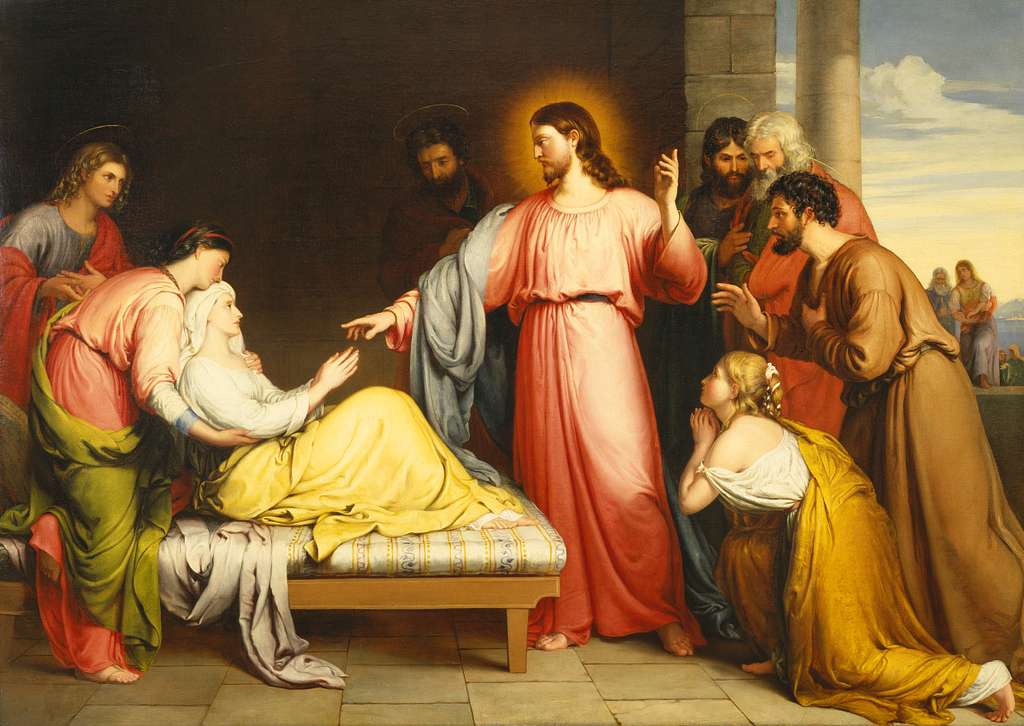
In the first reading, you have just heard how Job exclaims: “My days are swifter than a weaver’s shuttle; they come to an end without hope.”
Job represents, almost all the time, the opinion of a kind of pagan who thinks that there is no God who cares for him. For Buddhism, Hinduism, Hegel, Laplace, Darwin, Marx, Freud, or any materialist or determinist doctrine, the individual person’s life matters little. They affirm that every event is physical, including human thought and action, and therefore is determined by an unavoidable web of cause-effect threads. Individual life, thus, has no meaning; it has no projection beyond death.
The overcoming of this pessimistic and oppressive vision of man and his freedom will come in our gospel today.
It is curious that precisely to preface the generic description of Jesus’ action, which summarizes his victorious action over evil in the world, Mark, a direct disciple of Peter, wants to show that the Lord is not only concerned in general with men or women, with humanity, but with each one. As John says, Jesus is the good shepherd who knows each sheep by name.
To characterize this action, he describes for us, after having named those who accompanied him one by one, the healing of Peter’s inconsequential mother-in-law. A fact that is unusually unimportant for us, but paradoxically transcendent and important for God because he takes care of even the most humble of human beings whom his Providence wants to lead to eternal salvation.
In reality, the cures, the goods and the evils of this world are never definitive, but rather, from God’s perspective, pure means, a path, in the middle of the warp of time and space, towards the Good of Glory. Or towards failure with no way out, if we live and die apart from Him.
To show it, Mark chooses this insignificant character, Simon’s mother-in-law, whose name he purposely does not even say – a name that Peter knew very well. Mark elevates her to the importance of making her appear in his gospel as the protagonist of Jesus’ first miracle. It was certainly not a great miracle, but it became a paradigm of all his subsequent miracles.
The Christian life is interwoven not with great but with small miracles, of which any of us could bear witness in our daily life; since the true and great miracle is that he has given us his Grace, that he has made us his children through Baptism, that he wants to lead us to the fullness of Life.
In this brief scene, the important thing is not the healing itself that restores the health and strength of Simon’s mother-in-law, but that she, Mark emphasizes, began to serve them (‘diekónei autotós’, says the Greek text).
Diakonia, service, charity, love for God and others, must be shown, even – and perhaps above all – in the small daily acts, such as those that this woman could do, in her simplicity.
We are always serving Jesus when we serve our brothers, especially our brothers in the true faith. Service gives meaning to our life, making it valuable and deserving of Eternal Life.
Let us remember that each one of us matters to the Lord. He died for the whole world in general but for each of us in particular. God’s personal love will enable us to serve him and our brothers and sisters with our whole hearts.

